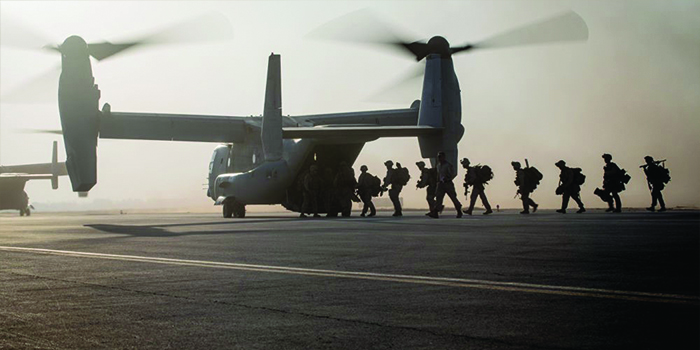The Biden announcement of US forces leaving Afghanistan by September 11 followed by mixed reactions. The Afghan President Ashraf Ghani said he would respect the decision. The Taliban warned the United States to leave Afghanistan by May 01, a deadline fixed in the Doha deal which the Trump administration struck with the Taliban last year. The government announced that it was prepared for both war and peace while political factions underlined that they were preparing for war if the talks with the Taliban collapse.
Though the Taliban announced that they will not take part in any conference until all foreign forces leave Afghanistan, experts who are familiar with the subject predict the group will attend the 10-day Istanbul conference scheduled to start on April 24 in Turkey. They say the Biden announcement on US withdrawal kicked the ball in Taliban court, something, as they believe, will give more weight to the Taliban on negotiating table.
Dreaming a takeover
The Taliban sees themselves as the victor of the war. Many rank-and-file Taliban fighters have been dreaming of a military take over therefore the group appears reluctant to reach a political settlement with the Afghan government. “Most Taliban [commanders and fighters] are of the opinion that they can take over the country,” says Elham Gharji, a researcher who follows Afghan war and peace closely.
To gain more concession, the Taliban declared that they would boycott any conference on Afghanistan in the presence of foreign forces in the country. Experts say more diplomatic pressure is needed to push the Taliban to join the Istanbul meeting. The Taliban seems reluctant to attend the Istanbul meeting but they might be lured to take part in the conference if the international community put diplomatic pressures on the group’s leadership, according to Gharji. The US departure, he believes, uplifts the Taliban in a position of strength on a power-sharing table talk.
The Afghan war and peace is a multidimensional problem. The land-locked country is sandwiched among powerful rivaling neighbors that have strategic interests in this war-torn country. Pakistan which shares the longest border with Afghanistan has a strong influence over Taliban leadership while Pakistan’s arch-foe India puts support behind the Afghan government. China, Russia, the Gulf States of Arabs, Saudi, and Iran follow their western interests in Afghanistan.
Afghan peace will succeed only when the country’s neighboring nations reach regional consensus otherwise the country will enter into a new chapter of war and bloodshed, says Mohammad Ikram Andishmand, a researcher. “Before a peace arrangement, any withdrawal will strengthen the Taliban’s position in negotiations and weakens the government,” he told Kabul Now.
An unconditional US withdrawal will serve the interest of the Taliban. Experts who are familiar with the subject say none of the conditions set in the Doha deal have been met and the Taliban have failed to meet their commitments.
A UN report published earlier suggests the Taliban have not cut its ties with al Qaeda and the group maintains contact with some terror networks.
“Ball is in Taliban’s court”
With the United States’ announcing to pull out its troops from Afghanistan, the Taliban have no excuse to put an end to violence.
Nekbakht Fahimi, a female MP who represents the central Bamyan province, is of the opinion that foreign withdrawal leaves no room for the Taliban to go around bushes and make excuses. “The ball is currently in the Taliban’s court. I am not pessimistic if [we can] restore peace for no goodwill gesture is signaled by the Taliban since the beginning of the peace talks,” she told Kabul Now.
She anticipated that the current political system will exist. “Some changes are possible in the leadership of the Afghan government but a complete collapse of this [political] system is far from possible.”
The US has committed to continue its assistance for the Afghan security forces and the government. The EU has also repeatedly announced that the EU nations would support the Afghan government and the intra-Afghan peace process.
Gharji believes that the government will not collapse as the international community will continue to support it and various Afghan political factions would likely form an anti-Taliban coalition.
The Afghan government will have a hard time to garner regional and international supports.
“Except India and to some extent Iran, other regional countries do not support Ghani’s government. The government’s legitimacy is very low. Politically, preventing a collapse needs major reforms,” Gharji denoted, noting that the current leadership of the government is incapable of garnering regional and national supports.




